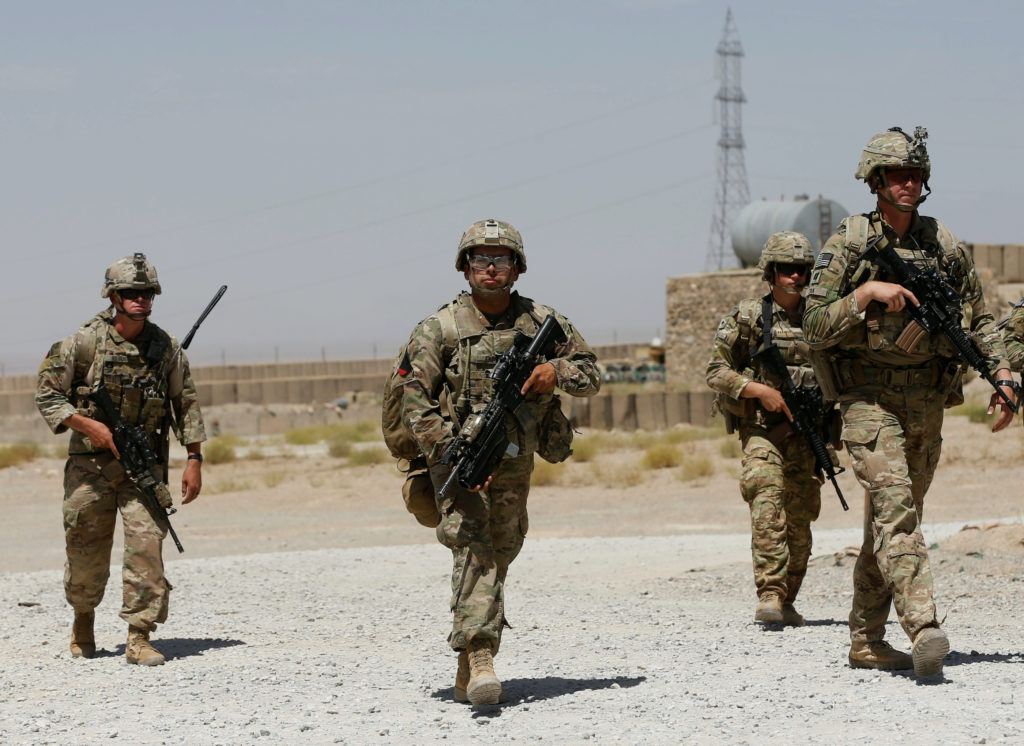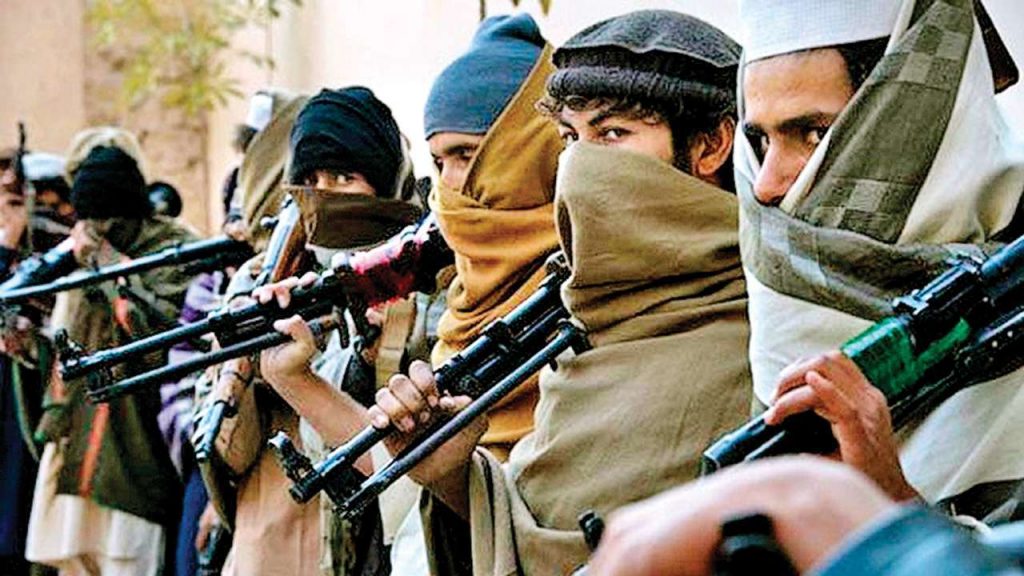
Senators including Republicans have slammed the President saying that the terrorists would ‘love the idea’
President Trump who before the elections had said that he wants “all” troops home by Christmas, seems to be acting in a hurry on that front. US media reports that as per the President’s order, US troops in Afghanistan will be cut from about 5,000 to 2,500 by mid-January and those in Iraq will be reduced from 3,000 to 2,500. If all goes as planned, the withdrawal should be finished by 15 January. The new US President takes oath of office on 20th January.
Though withdrawal of Troops had been on Trump’s agenda since his election campaign in 2016, his latest order over further troop withdrawal from Afghanistan and Iraq has received mixed responses both at home and abroad. President Trump has always criticised US military interventions in other countries for being costly and ineffective, a charge he has regularly levied on his predecessor Barack Obama. He has called for US troops to come back home as early as possible.
However, Senators including Republicans have slammed the President saying that the terrorists would ‘love the idea’. According to a BBC report, Republican – Senate Mitch McConnell speaking on the floor of the upper chamber on Monday said that the US is playing a limited but important role in defending American national security and American interests against terrorists who would like nothing more than for the most powerful force for good in the world to simply pick up our ball and go home. “They would love that”, he said.
In September, the Pentagon announced it was to withdraw more than a third of its troops from Iraq within weeks – from about 5,200 to 3,000. US Middle East commander Gen Kenneth McKenzie had said those remaining would continue to advise and assist Iraqi security forces in “rooting out the final remnants” of the jihadist group Islamic State (IS).
US-led forces invaded Iraq in 2003 to overthrow President Saddam Hussein accusing him of developing and storing weapons of mass destruction. After the invasion on this pretext and overthrowing Saddam Hussein, no WMDs were found in Iraq. Since then thousands of US troops have been stationed here to fight militancy and terrorism fomented by Al-Queda and ISIS.
The US troops entered Afghanistan in 2001 after the attacks on the Twin Towers in New York. US led forces ousted the Taliban weeks after the 11 September 2001 attacks by Al-Qaeda, which was then based in Afghanistan. However, the Taliban regrouped gradually and by 2010s became an insurgent force. By 2018, the regrouped Taliban was active in more than two-thirds of the country.
On February 29 this year, the US signed a peace deal with Taliban due to which it started to withdraw its forces. Security experts and many former US military chiefs have warned that a hasty withdrawal could jeopardise the security in the country and lead to further strife.
Top Democrat on the Senate committee, Jack Reed of Rhode Island, criticized the announcement. “There’s a right way and a wrong way to do this. President Trump is once again choosing the wrong way, and we can’t let US national security and our relationships with steadfast partners become a casualty of President Trump’s wounded ego,” he said. “Instead of heeding the advice of national security professionals and working with our allies, President Trump is venting his frustration over losing the election in a manner that is more costly, jeopardizes our military personnel, aids the Taliban and terrorist networks, and emboldens those who want greater conflict with Iran,” Reed added.
NATO Secretary-General Jens Stoltenberg echoing Reed’s concerns on Tuesday warned that the price for leaving Afghanistan too soon could be very high.
Turkish news agency Anadolu Post quoted Afghanistan’s acting Defense Minister Asadullah Khalid on Tuesday who discarded prospects of a complete withdrawal of foreign forces from the war-ridden country anytime soon. Outlining the security policy in parliament for a vote of confidence, Khalid claimed that contrary to popular perception, the number of foreign troops might instead surge in the coming months. He added that the Taliban insurgents expedited their attacks parallel to the peace parlay in Qatar and wished to overrun restive Kunduz, Helmand, Ghazni and Farah provinces, but failed.
Sediq Sediqqi, spokesman for Afghan President Mohammad Ashraf Ghani, in a news conference in Kabul said that over 90% of security operations across Afghanistan are carried out by the local forces. “We still face a serious terrorist threat. There are still dozens of terrorist groups in Afghanistan, including al Qaeda and the Taliban. We are committed to ensuring that terrorists never threaten our international partners from Afghan soil,” he said.
India walks a tight-rope
A US withdrawal will pose security challenges to the present Afghan government and neighbouring India. With the Taliban at the helm, India is also concerned about its investments in Afghanistan and increase in infiltration and terror activities within its borders.

India on the other hand believes that a US withdrawal from Afghanistan would result in an increase in insurgency in Jammu & Kashmir as the battle hardened Taliban and Al-Qaeda fighters will be roped in by Pakistan to infiltrate and cause trouble in India. Though the Indian Defence forces have said that they are ready to counter any eventualities, the threat of border infiltration and increase in terror attacks remain.
Apart from the terrorist threats, India is also concerned about its investments in Afghanistan. Ever since reconstruction work began in Afghanistan in the early 2010s, India has invested over $3 billion for building roads, hospitals, schools, providing training, arms and fighter aircrafts to the Afghan armed forces. Taliban’s arrival on the centre stage after the US withdraws its troops, will put India’s economic interests here at stake. India is also concerned that Pakistan might continue to use Taliban to attack its troops and investments in Afghanistan.
Instability in Afghanistan will benefit Pakistan in more ways than one. A volatile Afghanistan with Taliban at the helm will make it easy for Pakistan to interfere in its internal affairs, extract a cost from countries whose investments are in Afghanistan, and try to isolate India with help from China. India has time and again charged that several attacks on its consulates and projects in Afghanistan in recent times have been executed by terrorist forces linked to the Taliban at the behest of Pakistan. India’s efforts to strike a deal with Taliban has not materialised due to the heavy Pakistani influence in the group.
Given the emerging scenario, India would have to find a way to deal with the new power coalition in Afghanistan and also ensure that it does not reduce its investment in the country. India can protect its interests with enhanced cooperation with the Afghan intelligence service and the National Directorate of Security. It must also expand its networks within Afghanistan—including with Taliban and forces linked with it.
